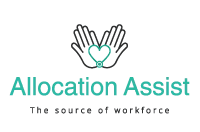Allocation Assist Middle East has branched out into Saudi Arabia’s rapidly expanding healthcare sector, while still maintaining our focus on our base in the United Arab Emirates.
Saudi Arabia is a country undergoing a transformational change, with rapid development in many sectors, as well as cultural and social reforms. Much of the information about Saudi Arabia on the internet is biased or outdated. If you have not yet had the chance to visit Saudi Arabia, we encourage you to go and see for yourself.
Here, we address some of the common misconceptions:
Saudi Arabia is all desert
While it is true that much of the country is covered by desert, Saudi Arabia is a large, geographically diverse country. There are mountainous regions, green forests and fertile oases. Saudi Arabia has extensive coastlines on 3 sides, where you can find coral reefs and beautiful beaches.
The northwestern mountainous region of Tabuk has sub-zero temperatures and snow during the winter, making snowboarding and skiing possible. Saudi Arabia is investing in sustainable development and tourism, with projects such as NEOM, the Red Sea Project.
The Kingdom’s tree-planting initiative is one of the largest in the world, increasing the amount of greenery in the country while helping to tackle global climate change. Saudi Arabia’s modern metropolitan cities, such as Riyadh and Jeddah, attract expatriate residents from around the world to work in the country’s diversifying economy.
You need to speak Arabic to live and work in Saudi Arabia
Arabic is the official language of Saudi Arabia, but English serves as an informal second language and is the common language in most workplaces. Most road and shop signs are written in both Arabic and English. For the majority of jobs, it is not required to speak Arabic. However, learning the local language can help give an insight into the culture and help build rapport with Arabic speakers.
Life in Saudi Arabia is very restrictive
Expatriate residents from different countries and cultures around the world constitute around 40% of the population. Many Saudi citizens, who have studied or traveled abroad, maintain an open-minded awareness of life in other cultures.
Saudi Arabian culture is very welcoming and hospitable to guests, and respectful towards women. While Saudi Arabia is an Islamic country with certain cultural norms to be respected, expats are free to practise their own religion in private.
Since 2018, Saudi Arabia has been undergoing many social reforms, in line with the Kingdom’s Vision 2030. Women can now drive, obtain a passport and travel independently. There is no mandatory gender segregation, so that men and women can mix freely in public spaces.
Women are no longer required to wear the abaya or a headscarf in public. Female participation in the workforce is rising exponentially each year, and women who relocate to Saudi Arabia for their husband’s employment can work on their own residence visa.
There is not much social life or entertainment
Those relocating to Saudi Arabia will find a warm welcome, from both Saudis and the international expat community. Whether you are single or married, with or without children, there are many opportunities to socialise and make friends. You will find a wide variety of social groups based on different interests and hobbies. As Saudi society is opening up to international visitors, there is an increasing array of entertainment, cinema and sports venues.
The major cities, such as Riyadh and Jeddah, host a variety of international sports, music, and cultural events. There are many places to visit for a day-trip or staycation within Saudi Arabia, with new tourism resorts currently opening, such as in NEOM.
Saudi Arabia does not offer a good quality of life for families
Families relocating to Saudi Arabia enjoy a great quality of life. Doctors earn higher salaries than in their home countries, and there is no income tax. Most employment contracts provide benefits such as accommodation, medical insurance, annual flights home, and allowances for children’s education.
Combined with a relatively lower cost of living, families can enjoy a high standard of living and also save for the future. Residential communities have recreational facilities, such as swimming pools, tennis courts, libraries, parks and museums. Saudi Arabia offers a safe, family-friendly environment, with a low crime rate and good choice of international schools.
Saudi Arabia’s Health Sector Transformation Programme, a part of the Kingdom’s Vision 2030, is increasing the number of internationally accredited hospitals, investing in highly skilled healthcare professionals, and promoting digital healthcare innovation.
Contact Allocation Assist Middle East today to find out about opportunities in Saudi Arabia’s established and growing healthcare sector.


